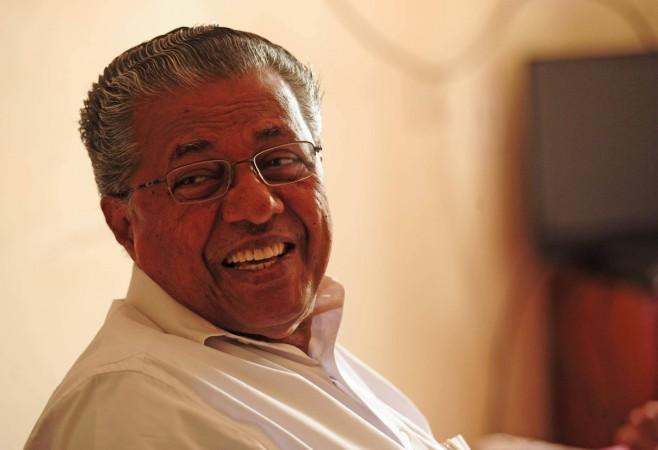
"They do not know it, but they are doing it," Slovakian philosopher Slavoj Zizek invoked Karl Marx's (Das Kapital) to explain Ideology. But how much violence does the Communist theory really warrant?
Read: I will sell house and assets to get Kerala CM killed,' says RSS leader
Of course, the Indian Communist party officially distanced itself from the Calcutta Thesis long back, gave up on the hardline politics to shoehorn itself into the democratic framework, and contested elections and won. However, there were fractions within the party, who felt betrayed by the revisionist tendency within the Red party.
Naxalism, Maoism, and other radical splinter groups are a byproduct of circumstances as much as the Communist Party's failure to think beyond its by-the-book ideology and snobbish intellectualism.
Communism, at its heart, is a call for change, a mass movement of resistance, and armed struggle is part of the deal.
But by adopting this strategic line, did the party compromise on it's raison d'etre'? And when in power, does the red party go by a different playbook? Is power too much to handle for the party?
The history of Communism certainly offers a lesson or two. Salvador Allende, Josef Stalin, Nicolae Ceausescu, and Pol Pot, among others, turned their countries into Animal Farms. While in power, they danced to a different tune. Be that as it may, Marxism is far from done.
The rise of Syriza and Podemos, in Greece and Spain — two countries that mulled over Euro exits — shows how Communism suddenly gets a second wind in times of crisis.
How the cloud of fear slowly drifts aways to reveal a silver lining — the substance of things hoped for and evidence of things not seen. So much for the history of Communism.
Kerala had the first democratically-elected Communist party in office in India. But it didn't happen overnight, Communists were hounded out in McCarthyist style.
The witchhunts saw many comrades becoming martyrs; but the government's efforts to quell the underground movement ended up leveraging it. The unwashed masses began to organise themselves under the Communist umbrella, and guided by the intellectual vanguard, the Communist movement suddenly picked up momentum.
The revolution ended up in the Communist party taking over power in the state of Kerala, in 1957. The party brought radical changes by passing the land reformation, education bill among others.
It looked like Communism was here to stay in the southern tip of India. But things started going south once the liberation struggle — led by the Catholic church, Nair Service Society and Indian the Union Muslim League — inspired a groundswell of protest against agrarian reform, and the education bill of the first Communist government across the state. The EMS Namboodirippad-led Left government was dismissed in the aftermath in 1959.
Kerala Chief Minister Pinarayi Vijayan was 14 years old when the first democratically-elected Communist government sank.
Pinarayi is a small village near Parapram in Kannur district where the Communist party held its first-ever meeting. EMS, Krishna Pillai and other major Communist leaders took part in the meeting. So in a way, Pinarayi's long walk to the helm of the Communist party and the state of Kerala was driven by historical necessity.
He comes from an agrarian family with a Communist background. In an interview for People's Channel, he opened up about his childhood; how he warded off his fear of spirits.
He took it upon himself to do away with the fear by going to funerals and sometimes touching the dead body. The fear of corpses slowly fell away. The habit of fighting fire with fire was instilled in him from a very young age. It goes without saying, resorting to the politics of fear to stop him in his tracks will be counter-productive.
Pinarayi Vijayan is known for putting his foot down for the causes he believes in. Be it calling Thamarassery Bishop Paul Chitilapally a wretched creature, or dismissing Kanthapuram's 'holy relics' fraca, or taking on the RSS in the Mangalore rally, Pinarayi always means business.
Pinarayi is a hard taskmaster, and has been through the mill. Violence is not the way to engage him. He believes in giving respect to people when the opposite side commands it.
CK Chandrappan, a former CPI leader, had often criticised Pinarayi's ways. But every time, Pinarayi took it in the right spirit.
Communism runs deep in Kerala's soil. So, opposition, be it religious or political, is better off taking Communism on at the level of ideology and through democratic means. Because at the heart of it, Communism is a religion too.

















